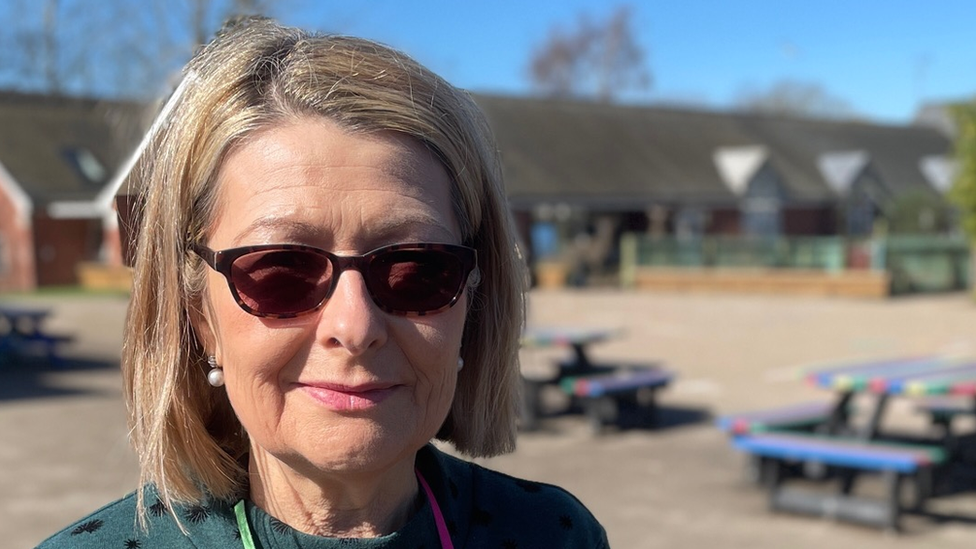Suffolk Covid a rise worrying situation, health official says
- Published
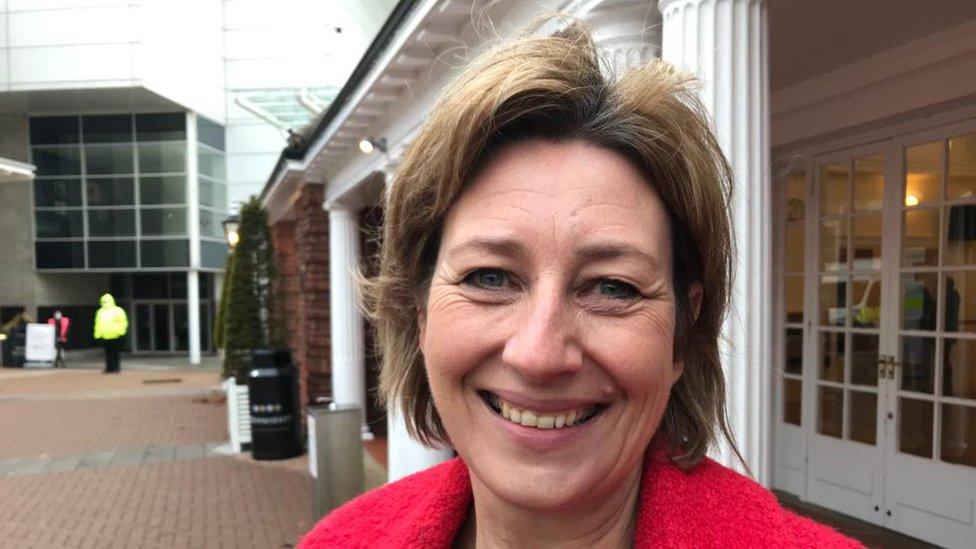
Lisa Nobes, the chief nurse in Suffolk, warning rising Covid rates could impact NHS services
The rise in Covid-19 case rates is a "really worrying situation", a health official has said.
Lisa Nobes, the chief nurse in Suffolk, put the increase down to the relaxing of restrictions earlier this year.
All districts in Suffolk have seen case rates rise - Ipswich has 1,375 cases per 100,000, which is the 12th highest rate in England.
Ms Nobes said: "You see people not wearing masks and not working to the restrictions we previously had."
It comes as people aged 75 and over, residents in care homes and those with weakened immune systems can now book an extra booster jab against Covid in England.
The rollout follows recommendations from the UK's vaccine advisers who say additional jabs will help boost protection for the most vulnerable.

A mobile vaccination hub based on bus will offer jabs across Suffolk
Ms Nobes said: "We know immunity does wane over time, at around that six month period it is time to get another booster."
To help to the rollout in Suffolk a mobile vaccination hub will visit areas where vaccine take up is lower and it was harder to access jabs.
That includes areas such as Haverhill, Sudbury and Newmarket, where the bus was on Friday.

Covid rates in Suffolk
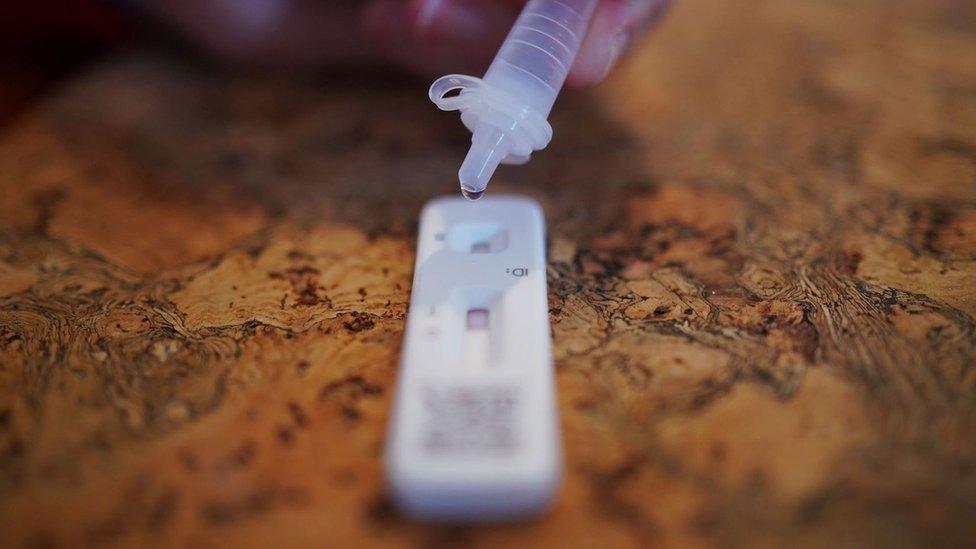
All districts in Suffolk have seen case rates rises
Ipswich: 1,375 cases per 100,000 people, a 33% rise from the previous week
Mid Suffolk: 1,228 cases per 100,000 people, a 19% rise
Babergh: 1,211 cases per 100,000 people, a 23% rise
East Suffolk: 1,200 cases per 100,000 people, a 20% rise
West Suffolk: 977 cases per 100,000 people, a 19% rise
Data for the week to and including 21 March.

Ms Nobes said the increase in case rates in Suffolk was "due to the changes in restrictions".
She said removing the need for mask wearing, social distancing, and the recommendation to work from home was a "significant cause" of the rise in cases.
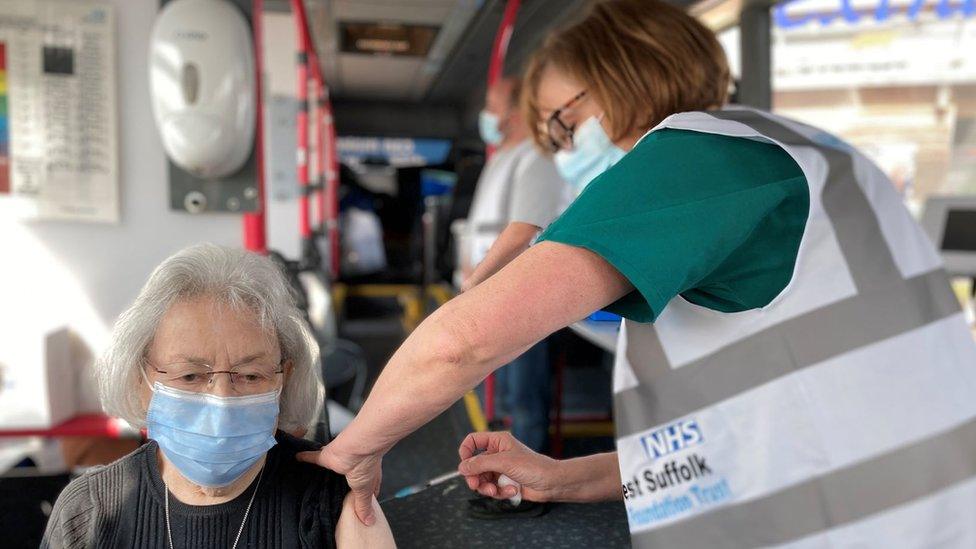
People aged 75 and over, residents in care homes and those with weakened immune systems can now book an extra booster jab against Covid
The chief nurse said: "It's a really worrying situation because higher incidences of Covid in our hospital doesn't just impact those people, it impacts on people getting cancer treatments or elective surgery.
"It means our ambulance service suffers, it means we have work force problems in social care and in the NHS it causes us real operation problems in our hospitals."

Find BBC News: East of England on Facebook, external, Instagram, external and Twitter, external. If you have a story suggestion email eastofenglandnews@bbc.co.uk, external
Related topics
- Published22 March 2022
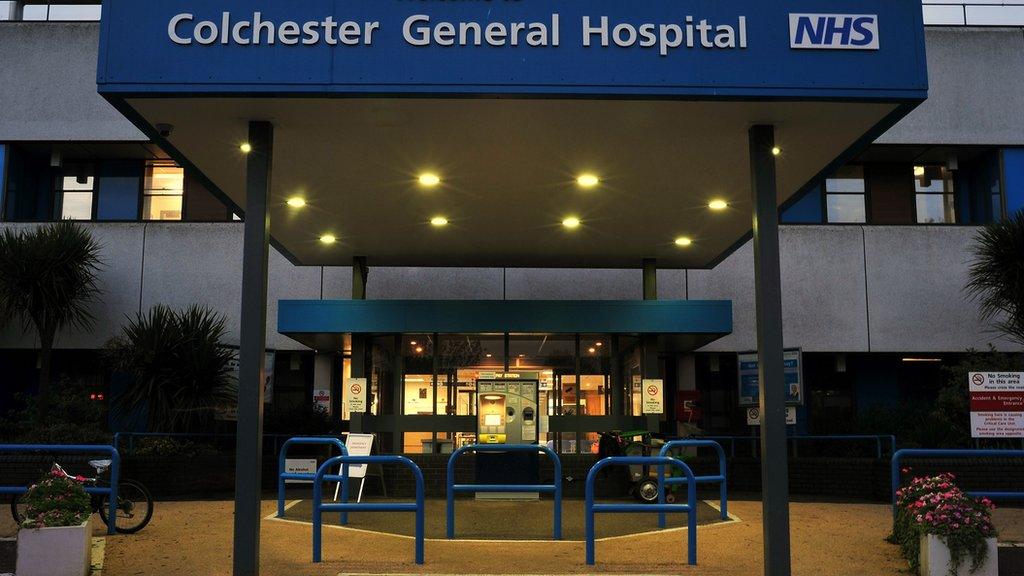
- Published17 March 2022
